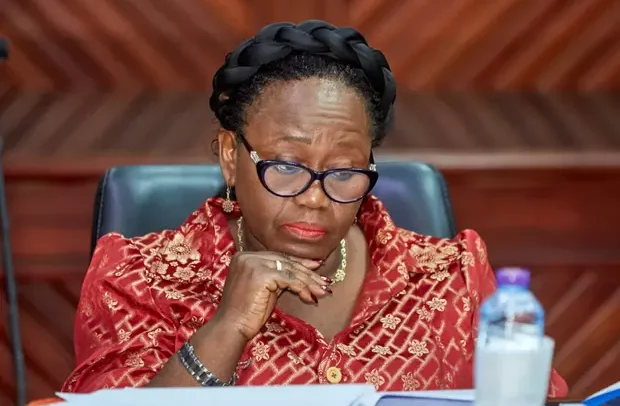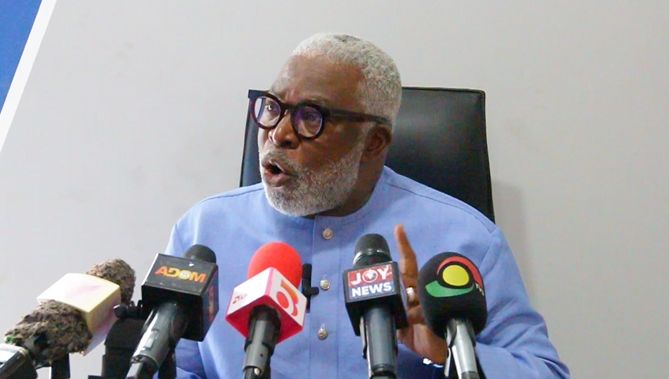
Accra, the capital of Ghana, is a busy city where thousands of people move around every day to work, trade, go to school, or access health care. Roads are very important in such a city because they connect people and businesses. Unfortunately, many of the roads in Accra are in poor condition, and this has become one of the biggest challenges for residents. The bad state of the roads makes transport difficult, increases traffic, causes accidents, and even affects the economy of the city.
Every morning, many commuters spend long hours in traffic because of the poor roads. A journey that should take only 30 minutes can take two hours or more, especially during rush hour. Potholes, broken road surfaces, and poor drainage make driving uncomfortable and dangerous. Drivers often complain that they spend too much money repairing their vehicles. Shocks, tires, and suspensions wear out quickly because of the bad roads. For ordinary passengers, this problem means they pay higher fares since transport operators increase prices to cover their repair costs.
The situation is worse during the rainy season. Poor drainage allows water to gather on the roads, which leads to flooding. Some neighbourhoods become cut off when roads are flooded. Children find it difficult to go to school, and traders lose their goods when water enters their shops. In places like Ashaiman, Adenta, and Taifa, residents sometimes walk through muddy water just to reach the main road. These floods also cause serious health risks, as people can easily fall into gutters or contract water-related diseases.
The poor road network in Accra not only affects people’s daily lives but also slows down the economy. Trucks that carry goods from the Tema Port to different parts of the country spend hours in traffic, and this raises the cost of doing business. Transport delays mean higher prices for goods in the markets. Small businesses lose money when their goods are stuck in traffic or destroyed by bad road conditions. In the end, ordinary consumers feel the impact when prices of food and other items go up.
Another serious issue is the rise in road accidents. Bad roads contribute to crashes, especially when drivers try to avoid potholes or when water covers the road during heavy rains. Ambulance drivers also struggle to reach hospitals on time because they have to slow down on rough roads. This situation can cost lives, especially in emergencies.
Over the years, the government has promised to improve the roads in Accra. Some new projects, like the Pokuase Interchange, have helped to reduce traffic in certain areas. However, many other road projects are either incomplete or delayed. In some cases, contractors stop work because of funding problems. Even when roads are constructed, poor maintenance makes them deteriorate quickly. This has created frustration among residents who feel that promises are made but not fully delivered.
Many experts believe that the problem cannot be solved by simply patching potholes or constructing a few new roads. They argue that Accra needs a long-term plan that includes proper drainage systems, regular maintenance, and alternative transport options such as rail and efficient bus systems. The city has grown very fast, and its road network was not designed for such a large population. Without better planning, the problem will continue to get worse.
The road crisis in Accra also raises questions about governance and accountability. Citizens pay taxes and fuel levies, yet they do not always see results in the quality of infrastructure. Reports of corruption and abandoned projects make the public lose trust in the system. Protests and social media campaigns such as #FixAccraRoads show that residents are demanding more action and transparency.
Despite these challenges, there is still some hope. The completion of certain projects has shown that improvement is possible when the right investments are made and managed well. If the government, private sector, and citizens work together, Accra can have a better and safer road network in the future.
The state of roads in Accra is more than just an inconvenience. It is a problem that affects transportation, the economy, health, and even the environment. While some progress has been made, much more needs to be done to solve this problem in a lasting way. For many residents, the call is simple: they want roads that are safe, reliable, and built to last.
The writer is student of UniMAC
BY BLUVI AKOFA YVONNE
The post Deteriorating roads in Accra appeared first on Ghanaian Times.
Read Full Story



















Facebook
Twitter
Pinterest
Instagram
Google+
YouTube
LinkedIn
RSS